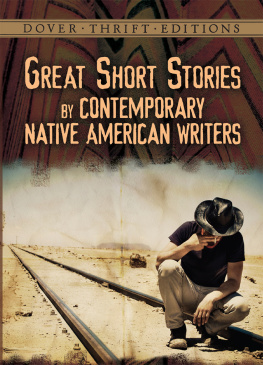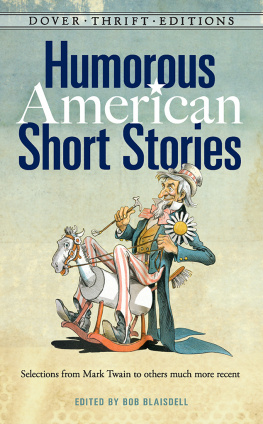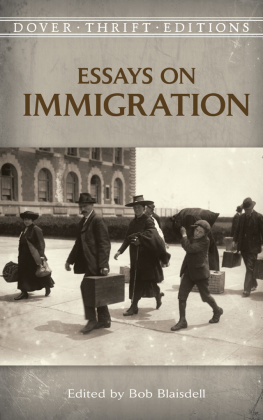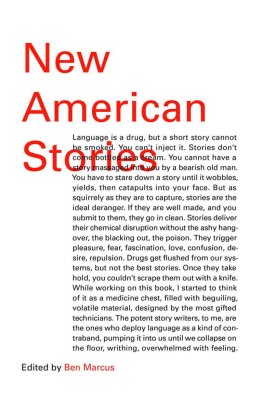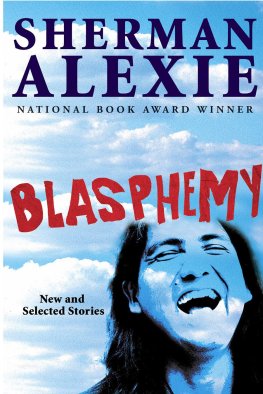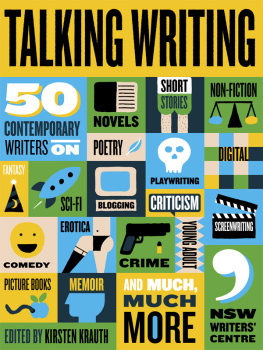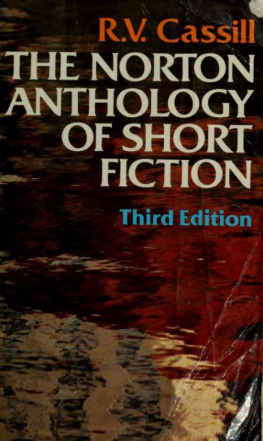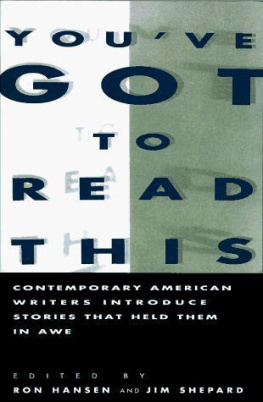
Great Short Stories by Contemporary Native American Writers
EDITED BY
BOB BLAISDELL

DOVER PUBLICATIONS, INC.
Mineola, New York
DOVER THRIFT EDITIONS
GENERAL EDITOR: MARY CAROLYN WALDREP
EDITOR OF THIS VOLUME: ALISON DAURIO
Copyright
Copyright 2014 by Dover Publications, Inc.
All rights reserved.
Bibliographical Note
Great Short Stories by Contemporary Native American Writers is a new compilation, first published by Dover Publications, Inc., in 2014. Bob Blaisdell has selected the stories, provided the introductory Note and the biographical information at the beginning of each story.
International Standard Book Number
eISBN-13: 978-0-486-31649-9
Manufactured in the United States by Courier Corporation
49095501 2014
www.doverpublications.com
Note
IM NOT SURE how to generalize these stories, except to remark that there is a disarming humor in many of them, while almost never an unrelenting grimness. Several are dramatizations of education: a child or a grown-up learning the world, a culture, a task, or a family history. Beth Piatotes gorgeous story, Beading Lesson, has it all:
Maybe next time you come they will be having a powwow at the prison and you can meet my students over there and they can show you their beadwork. I think they always have a powwow around November, around Veterans Day. Your cousin Carlisle and his family come over from Montana last time, and the only thing is, you got to go real early because it takes a long time to get all your things through security. They have to check all your regalia and last time they almost wouldnt let Carlisle take his staff in because they said it was too dangerous or something.
Whats that? Oh, thats all right. Just make it the same way on the other one and everyone will think you did it that way on purpose.
The first few stories in this anthology, which is arranged chronologically by date of first publication, may frustrate us at odd moments with their broad characterizations that verge on stereotypes, but they are each complicated by an artfulness and depiction of personally observed details of nineteenth-century Native American life and ways. In The Soft-Hearted Sioux, for example, Zitkala-Sa tells of the dilemmas faced by a mission-educated young man:
In the autumn of the tenth year I was sent back to my tribe to preach Christianity to them. With the white mans Bible in my hand, and the white mans tender heart in my breast, I returned to my own people.
Wearing a foreigners dress, I walked, a stranger, into my fathers village.
Asking my way, for I had not forgotten my native tongue, an old man led me toward the tepee where my father lay. From my old companion I learned that my father had been sick many moons. As we drew near the tepee, I heard the chanting of a medicine-man within it. At once I wished to enter in and drive from my home the sorcerer of the plains, but the old warrior checked me. Ho, wait outside until the medicine-man leaves your father, he said. While talking he scanned me from head to feet.
The best stories, like the best stories everywhere at all times, are intense and continually surprising, among them DArcy McNickles Train Time, about a white Indian agent who believes he is doing the best for the children hes sending away from the reservation to a boarding school. He clearly feels some uneasiness about his decision, a grave doubt that, as we read, dawns on us and leads us to hope that one day the Major himself may regret his act of coercion: Whether the boy understood what was good for him or not, [the Major] meant to see to it that the right thing was done. And that was why, when he made up a quota of children to be sent to the school in Oregon, the name of Eneas Lamartine was included. The Major did not discuss it with him again, but he set the wheels in motion. The boy would go with the others. In time to come, he would understand. Possibly he would be grateful.
In Sherman Alexies War Dances, we feel as if the writer is discovering the story himself and extending conventional short-story boundaries as he composes it: we encounter an interview, a checklist, a poem, a critique of that poem, and continual jokes and revelations. Such unfoldings by Alexie in this particular narrative are comical, moving, and effective. Alexie has built his career reflecting on the everyday bewilderments of multicultural America and what it means, anyway, to identify oneself or others as Natives: And then I saw him, another Native man, leaning against a wall near the gift shop. Well, maybe he was Asian; lots of those in Seattle. He was a small man, pale brown, with muscular arms and a soft belly. Maybe he was Mexican, which is really a kind of Indian, too, but not the kind that I needed. It was hard to tell sometimes what people were. Even brown people guessed at the identity of other brown people.
On the other hand, Duane Niatums Crows Sun is a steady moment by moment depiction of a young Naval servicemans introduction to the warden of a Marine Corps brig. Thomas will have to travel in his mind through space and time to endure this initiation:
Casually, as if just waking up, the Sergeant lets his eyes drift down to Thomass shoes and the yellow line.
Whats your name, boy?
Young Thomas.
The Sergeants jaws flush; grow puffy. He lurches from his chair almost knocking it over.
The muscles in Thomass face tighten; his eyes thicken; narrow into tiny moons peering from behind a shield of fern. He sways slightly; stiffens his whole body, not sure what to expect from the man closing in. Grandson to Cedar Crow, Thomas feels his fingers change to claws, to a wing of thrashing spirit flying wildly inside his ear. (Be calm and steady now. This mans your enemy. Know his every move. Break him like a twig if he tries to harm you. Be the thunderbird in our song. I am Crow, your father.)
The stories take place from Canada to New Mexico, to the in-between borders mocked and dramatized in Thomas Kings Borders:
Citizenship?
Blackfoot.
I know, said the woman, and Id be proud of being Blackfoot if I were Blackfoot. But you have to be American or Canadian.
There are also the borders and intersections of cultures, as Pauline Johnson describes it through the heroine of A Red Girls Reasoning: She belonged to neither and still to both types of the cultured Indian. The solemn, silent, almost heavy manner of the one so commingled with the gesticulating Frenchiness and vivacity of the other, that one unfamiliar with native Canadian life would find it difficult to determine her nationality. Leslie Marmon Silko, who made her debut on the literary scene at age twenty-one, once said her search for identity as a half-breed is... at the core of her writing.
One of my hopes for this volume is that it inspires more stories by Native writers about that most American theme: discovery.
I could not have found many of these stories or authors without the loving, dedicated work of a number of editors of previous anthologies, among them:
Margot Astrov. The Winged Serpent: American Indian Prose and Poetry. Boston: Beacon Press. 1992.
Laura Coltelli. Winged Words: American Indian Writers Speak. Lincoln: University of Nebraska Press. 1990.
Rayna Green. Thats What She Said: Contemporary Poetry and Fiction by Native American Women. Bloomington, Indiana: Indiana University Press. 1984.
Institute of American Indian Arts. Both Sides: New Work from the Institute of American Indian Arts, 19931994
Next page
